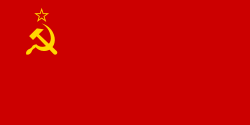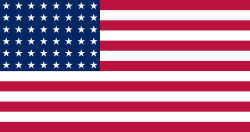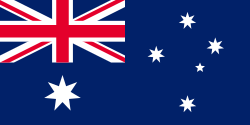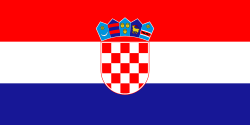Dmytro Monakow
| Dmytro Monakow Medaillenspiegel | ||
|---|---|---|
| Olympische Spiele | ||
| Gold | Seoul 1988 | Trap |
| Weltmeisterschaften | ||
| Gold | Valencia 1987 | Trap |
| Silber | Valencia 1987 | Trap (M) |
| Gold | Fagnano Olona 1994 | Trap |
Dmytro Witalijowytsch Monakow (ukrainisch Дмитро Віталійович Монаков; * 17. Februar 1963 in Kiew, Ukrainische SSR; † 21. November 2007 ebenda) war ein ukrainischer Sportschütze.
Erfolge
Dmytro Monakow nahm im Trapschießen an den Olympischen Spielen 1988 in Seoul für die Sowjetunion und 1996 in Atlanta für die Ukraine teil. 1988 zog er nach 149 Punkten in der ersten Runde und 48 Punkten im Halbfinale als Erstplatzierter ins Finale ein. In diesem blieb er ebenso wie der punktgleiche Miloslav Bednařík fehlerlos, sodass die Entscheidung über den Olympiasieg erst im Stechen fiel. Nachdem beide sieben Ziele trafen, verfehlte Bednařík das achte Ziel. Monakow dagegen traf auch dieses und gewann damit die Goldmedaille. 1996 kam er mit 115 Punkten nicht über den 45. Platz hinaus. 1987 in Valencia und 1994 in Fagnano Olona wurde Monakow Weltmeister. Außerdem sicherte er sich 1987 mit der Trap-Mannschaft Silber.
Nach seiner aktiven Karriere war er unter anderem Trainer der ukrainischen Nationalmannschaft. Monakow war verheiratet und hatte ein Kind.
Weblinks
- Dmytro Monakow in der Datenbank der International Shooting Sport Federation (englisch)
- Dmytro Monakow in der Datenbank von Olympedia.org (englisch)
| Personendaten | |
|---|---|
| NAME | Monakow, Dmytro |
| ALTERNATIVNAMEN | Monakov, Dmytro (englische Transkription); Монаков, Дмитро Віталійович (kyrillisch); Monakow, Dmytro Witalijowytsch |
| KURZBESCHREIBUNG | ukrainischer Sportschütze |
| GEBURTSDATUM | 17. Februar 1963 |
| GEBURTSORT | Kiew, Ukrainische SSR |
| STERBEDATUM | 21. November 2007 |
| STERBEORT | Kiew, Ukraine |
Auf dieser Seite verwendete Medien
Olympic Rings without "rims" (gaps between the rings), As used, eg. in the logos of the 2008 and 2016 Olympics. The colour scheme applied here was specified in 2023 guidelines.
Olympic Rings without "rims" (gaps between the rings), As used, eg. in the logos of the 2008 and 2016 Olympics. The colour scheme applied here was specified in 2023 guidelines.
US Flag with 48 stars. In use for 47 years from July 4, 1912, to July 3, 1959.
Flag of Hungary from 6 November 1915 to 29 November 1918 and from August 1919 until mid/late 1946.
The Canadian Red Ensign used between 1921 and 1957.
This image has compared for accuracy (mainly colors) using an image from World Statesmen. The only change is making the maple leaves green from red. This image has compared for accuracy (mainly colors) using an image from World Statesmen. The most recent version of this image has changed the harp into one with a female figure; see [http://flagspot.net/flags/ca-1921.html FOTW
The Canadian Red Ensign used between 1921 and 1957.
This image has compared for accuracy (mainly colors) using an image from World Statesmen. The only change is making the maple leaves green from red. This image has compared for accuracy (mainly colors) using an image from World Statesmen. The most recent version of this image has changed the harp into one with a female figure; see [http://flagspot.net/flags/ca-1921.html FOTW
Flag of Italy from 1946 to 2003, when exact colors were specified.
Flagge des Vereinigten Königreichs in der Proportion 3:5, ausschließlich an Land verwendet. Auf See beträgt das richtige Verhältnis 1:2.
Flagge des Vereinigten Königreichs in der Proportion 3:5, ausschließlich an Land verwendet. Auf See beträgt das richtige Verhältnis 1:2.
Flag of Australia, when congruence with this colour chart is required (i.e. when a "less bright" version is needed).
See Flag of Australia.svg for main file information.Das Bild dieser Flagge lässt sich leicht mit einem Rahmen versehen
Flag of Romania (24 September 1952 - 21 August 1965)

Construction sheet of the Flag of Romania as depicted in Decree nr. 972 from 5 November 1968.
- l = 2/3 × L
- C = 1/3 × L
- S = 2/5 × l















